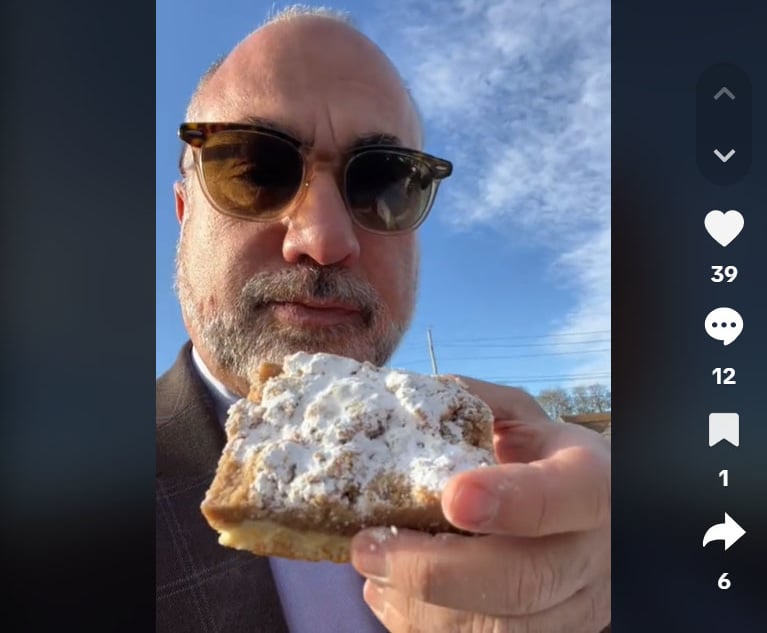 Fotolia
FotoliaGet Ready for Stormwater Utilities
Legislature takes final action to improve the quality of the state's waterways.
February 21, 2019 at 10:00 AM
6 minute read
Earlier efforts to improve the quality of the state's waterways focused on the control of discernible, confined and discrete conveyances of pollutants. These were generally associated with discharges from industrial facilities, sewage treatment plants, vessels and tanks. For additional discussion of the enactments that were directed at what have been described as these point sources of pollution including the Spill Compensation and Control Act, N.J.S.A. 58:10-23.11 et seq.; the Water Pollution Control Act, N.J.S.A. 58:10A-1 et seq.; and the Water Quality Planning Act, N.J.S.A. 58:11A-1 et seq., see L. Goldshore, “New Directions In Water Pollution Control,” 100 N.J.L.J. 805 (Sept. 8, 1977).
Even as those milestone building blocks were being put in place and implemented in the late 1970s, environmental professionals were aware that the so-called nonpoint sources (NPS) were serious contributors to water pollution and would continue to be substantially unregulated. According to the U.S. Environmental Protection Agency, the sources of NPS pollution include:
… land runoff, precipitation, atmospheric deposition, drainage, seepage or hydrologic modification. … NPS pollution is caused by rainfall or snowmelt moving over and through the ground. As the runoff moves, it picks up and carries away natural and human-made pollutants, finally depositing them into lakes, rivers, wetlands, coastal waters and ground waters.
But this situation is about to change. On Jan. 31, 2019, Assembly No. 2674/Senate No. 1073, entitled the Clean Stormwater and Flood Reduction Act (CSFRA), cleared its final legislative hurdle.
The proposal authorizes the establishment of the necessary governmental agencies known as stormwater utilities that will be responsible for stormwater management systems and, even more importantly, the methodology for funding remedial efforts. By taking this action, New Jersey will join some 40 other states that have authorized their local governments to establish stormwater utilities.
Gov. Murphy, in contrast to his predecessor who vetoed a stormwater utility proposal, has demonstrated his strong support for environmental protection objectives. His approval of the stormwater utilities authorization is highly likely. Major components of CSFRA will take effect 180 days following the governor's action.
|CSFRA: In Brief
Two key terms—“stormwater” and “stormwater management system”—define CSFRA's reach. “Stormwater” refers to water from precipitation “which runs off …, is transmitted to the subsurface, or is captured by separate storm sewers or other sewage or drainage facilities, or conveyed by snow removal equipment.” “Stormwater management system” includes the means, practices, activities and land “acquired, used, constructed, implemented, or operated to convey stormwater, control or reduce stormwater runoff and associated pollutants or flooding, induce or control the infiltration of groundwater recharge of stormwater, or eliminate illicit or illegal nonstormwater discharges into stormwater conveyances.”
CSFRA is permissive enabling legislation that does not authorize the creation of a new form of governmental entity to provide stormwater management services. Rather, the proposal relies and builds on the existing institutional framework. Counties and municipalities are provided with a number of options for establishing stormwater utilities responsible for acquiring, constructing, improving, maintaining and operating stormwater management systems.
The options include authorizing a county or municipality to directly establish a stormwater utility as a new department or as an operation of an existing department of local government; enabling a municipality or municipalities that have an extant sewerage authority or municipal utilities authority to request that the authority establish a stormwater utility; and permitting a county that has a functioning county sewerage authority, a county utilities authority or a county improvement authority to request that the authority establish a stormwater utility. In an acknowledgment of the desirability of shared services agreements, municipalities are authorized to enter into such agreements concerning stormwater management systems.
Managing stormwater is exceedingly costly. According to one estimate this is a $16 billion problem and will clearly need to be addressed over decades on an incremental basis.
Stormwater utilities will incur substantial costs to plan and implement stormwater management measures. To meet their obligations, the responsible entities are authorized to issue bonds and impose reasonable fees and charges on the owners or occupants, or both, of real property that contributes to stormwater runoff. Property taxed pursuant to the Farmland Assessment Act is exempt from these fees and charges. N.J.S.A. 54:4-23.1 et seq.
The broadly worded standard for the assessment of those fees and charges requires that they are “based on a fair and equitable approximation of the proportionate contribution of stormwater runoff from a real property.” Partial fee reductions are to be provided in certain circumstances, including when the property is serviced by properly functioning “green infrastructure” designed to reduce, retain or treat stormwater onsite that exceeds DEP or local requirements. Based on the general experience with other utility fees and charges, and the novelty of charging for stormwater runoff, it can be expected that the methodology for establishing and administering CSFRA's monetary levies will result in disputes and litigation.
The proposal provides remedies for the collection of unpaid stormwater utility fees or charges. These include the assessment of interest at the rate of one and one-half percent per month; the imposition of a lien on the affected property; and the institution of a collection action for the unpaid balance with interest, together with attorney fees and costs.
|Reactions
CSFRA received limited bi-partisan support. According to Tom Johnson in the Feb. 1 issue of NJSpotlight.com, some Republican members “decried it as yet another burden on an already heavily taxed populace.” According to Assemblyman Hal Wirth (R-Sussex): “It's a rain tax on the people of New Jersey. I don't know if a snow tax is coming next year.”
As expected, representatives of the organized environmental community expressed a favorable view of the proposal. In a Jan. 29 NJSpotlight.com article, Britta Wenzel, executive director of Save Barnegat Bay, had a different take on the economic issue: “This is a bill you can't afford to vote against today.” Ed Potosnak, executive director of the New Jersey League of Conservation Voters, commented on the need to address the underlying issues: “Local flooding is a huge problem, and local leaders need the ability to protect their communities from it.”
Authorizing an effective local governmental structure and providing a funding source to address stormwater and NPS has long been a priority for CSFRA's prime sponsor in the Senate, Sen. Bob Smith (D-Middlesex), chair of the Senate Environment and Energy Committee. Sen. Smith noted: “I've heard the objections from the naysayers. But what they are ignoring are the far greater public costs that result from not improving the stormwater management system and NPS. While this will be the first time that stormwater utilities are authorized in New Jersey, there are more than 1,600 such entities currently operating successfully in the United States.”
Lewis Goldshore practices in Princeton. His practice is devoted to environmental, land use and municipal law. He is the author of New Jersey Environmental Law (ICLE 2010).
|This content has been archived. It is available through our partners, LexisNexis® and Bloomberg Law.
To view this content, please continue to their sites.
Not a Lexis Subscriber?
Subscribe Now
Not a Bloomberg Law Subscriber?
Subscribe Now
NOT FOR REPRINT
© 2025 ALM Global, LLC, All Rights Reserved. Request academic re-use from www.copyright.com. All other uses, submit a request to [email protected]. For more information visit Asset & Logo Licensing.
You Might Like
View All
Tensions Run High at Final Hearing Before Manhattan Congestion Pricing Takes Effect
3 minute read

Appreciating the Important Work the Middlesex County Civil Bar Panel Does
7 minute read
Trending Stories
- 1Restoring Trust in the Courts Starts in New York
- 2'Pull Back the Curtain': Ex-NFL Players Seek Discovery in Lawsuit Over League's Disability Plan
- 3Tensions Run High at Final Hearing Before Manhattan Congestion Pricing Takes Effect
- 4Improper Removal to Fed. Court Leads to $100K Bill for Blue Cross Blue Shield
- 5Michael Halpern, Beloved Key West Attorney, Dies at 72
Who Got The Work
Michael G. Bongiorno, Andrew Scott Dulberg and Elizabeth E. Driscoll from Wilmer Cutler Pickering Hale and Dorr have stepped in to represent Symbotic Inc., an A.I.-enabled technology platform that focuses on increasing supply chain efficiency, and other defendants in a pending shareholder derivative lawsuit. The case, filed Oct. 2 in Massachusetts District Court by the Brown Law Firm on behalf of Stephen Austen, accuses certain officers and directors of misleading investors in regard to Symbotic's potential for margin growth by failing to disclose that the company was not equipped to timely deploy its systems or manage expenses through project delays. The case, assigned to U.S. District Judge Nathaniel M. Gorton, is 1:24-cv-12522, Austen v. Cohen et al.
Who Got The Work
Edmund Polubinski and Marie Killmond of Davis Polk & Wardwell have entered appearances for data platform software development company MongoDB and other defendants in a pending shareholder derivative lawsuit. The action, filed Oct. 7 in New York Southern District Court by the Brown Law Firm, accuses the company's directors and/or officers of falsely expressing confidence in the company’s restructuring of its sales incentive plan and downplaying the severity of decreases in its upfront commitments. The case is 1:24-cv-07594, Roy v. Ittycheria et al.
Who Got The Work
Amy O. Bruchs and Kurt F. Ellison of Michael Best & Friedrich have entered appearances for Epic Systems Corp. in a pending employment discrimination lawsuit. The suit was filed Sept. 7 in Wisconsin Western District Court by Levine Eisberner LLC and Siri & Glimstad on behalf of a project manager who claims that he was wrongfully terminated after applying for a religious exemption to the defendant's COVID-19 vaccine mandate. The case, assigned to U.S. Magistrate Judge Anita Marie Boor, is 3:24-cv-00630, Secker, Nathan v. Epic Systems Corporation.
Who Got The Work
David X. Sullivan, Thomas J. Finn and Gregory A. Hall from McCarter & English have entered appearances for Sunrun Installation Services in a pending civil rights lawsuit. The complaint was filed Sept. 4 in Connecticut District Court by attorney Robert M. Berke on behalf of former employee George Edward Steins, who was arrested and charged with employing an unregistered home improvement salesperson. The complaint alleges that had Sunrun informed the Connecticut Department of Consumer Protection that the plaintiff's employment had ended in 2017 and that he no longer held Sunrun's home improvement contractor license, he would not have been hit with charges, which were dismissed in May 2024. The case, assigned to U.S. District Judge Jeffrey A. Meyer, is 3:24-cv-01423, Steins v. Sunrun, Inc. et al.
Who Got The Work
Greenberg Traurig shareholder Joshua L. Raskin has entered an appearance for boohoo.com UK Ltd. in a pending patent infringement lawsuit. The suit, filed Sept. 3 in Texas Eastern District Court by Rozier Hardt McDonough on behalf of Alto Dynamics, asserts five patents related to an online shopping platform. The case, assigned to U.S. District Judge Rodney Gilstrap, is 2:24-cv-00719, Alto Dynamics, LLC v. boohoo.com UK Limited.
Featured Firms
Law Offices of Gary Martin Hays & Associates, P.C.
(470) 294-1674
Law Offices of Mark E. Salomone
(857) 444-6468
Smith & Hassler
(713) 739-1250






